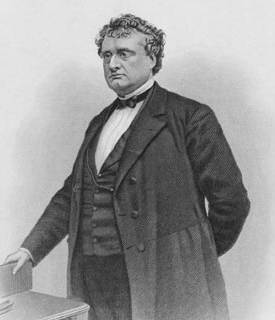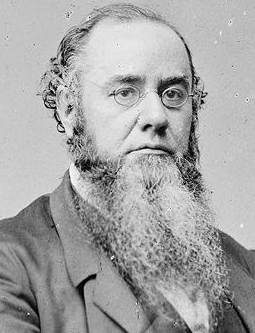Stafford C.H.,Va. [BCF]
Feb. 8,1863Dear Annie,
You know by this time, perhaps, that I have changed my mind about the black regiment. After Father left, I began to think I had made a mistake in refusing Governor Andrew’s offer. Mother has telegraphed to me that you would not disapprove of it, and that makes me feel much more easy about having taken it. Going for another three years is not nearly so bad a thing for a colonel as a captain; as the former can much more easily get a furlough. Then, after I have undertaken this work, I shall feel that what I have to do is to prove that a negro can be made a good soldier, and, that being established, it will not be a point of honour with me to see the war through, unless I really occupied a position of importance in the army. Hundreds of men might leave the army, you know, without injuring the service in the slightest degree.
Last night I received your letter of last Sunday, February i st. You must be at Susie’s house now,—at least I judge so from Mother’s telegram. As I may not receive my order to leave here for some days, do promise to stay there until I get to New York. You do not know how I shall feel if I find you are gone. It is needless for me to overwhelm you with a quantity of arguments in favour of the negro troops; because you arc with Mother, the warmest advocate the cause can have. I am inclined to think that the undertaking will not meet with so much opposition as was at first supposed. All sensible men in the army, of all parties, after a little thought, say that it is the best thing that can be done; and surely those at home, who are not brave or patriotic enough to enlist, should not ridicule, or throw obstacles in the way of men who are going to fight for them. There is a great prejudice against it; but now that it has become a government matter, that will probably wear away. At any rate, I shan’t be frightened out of it by its unpopularity; and I hope you won’t care if it is made fun of.
Dear Annie, the first thing I thought of, in connection with it, was how you would feel, and I trust, now I have taken hold of it, I shall find you agree with me and all of our family, in thinking I was right. You know how many eminent men consider a negro army of the greatest importance to our country at this time. If it turns out to be so, how fully repaid the pioneers in the movement will be, for what they may have to go through! And at any rate I feel convinced I shall never regret having taken this step, as far as I myself am concerned; for while I was undecided I felt ashamed of myself, as if I were cowardly.
Good bye, dear Annie. I hope that when I arrive at Sue’s door you will not be very far off.
With a great deal of love, (more every day) your
Rob
Stafford Court-House, Va. [BCF]
Feb. 8,1863
Dear Father,
Yours from Willard’s, enclosing Mother’s and Effie’s, was received to-day.Please tell Nellie I received hers of 17th January last night. I telegraphed you yesterday that I couldn’t get away from here without an order or furlough. It will have to come from Hooker or the War Department, and the Governor will have to get it for me. He knows what is needful, though, for he procured the necessary papers when Harry and I went home. If I have to wait some time, don’t let Annie go away until I get to New York, will you?
Tell Mother I have not wavered at all, since my final decision. I feel that if we can get the men, all will go right.
With love to all,
Your affectionate son,
Robert G. Shaw



